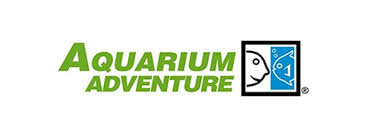Feeding Your Fish: Balancing Nutrition and Avoiding Overfeeding
Feeding your fish is one of the most rewarding aspects of aquarium keeping. However, it's crucial to understand that providing the right nutrition in the correct amounts is key to maintaining the health and well-being of your aquatic companions. In this guide, we'll explore the principles of fish nutrition, offer tips on balanced feeding, and discuss the importance of avoiding overfeeding.
Understanding Fish Nutrition
Fish, like any living creatures, require a balanced diet to thrive. This typically includes a combination of:
1. Proteins: Essential for growth, tissue repair, and overall vitality. Look for high-quality fish food with a protein content appropriate for your fish species.
2. Carbohydrates: While fish do not require carbohydrates to the same extent as other animals, they can still benefit from some complex carbohydrates for energy.
3. Lipids (Fats): Provide energy, support cell structure, and aid in nutrient absorption. Look for fish foods with healthy sources of fats.
4. Vitamins and Minerals: Necessary for various metabolic processes. A well-rounded diet should contain a variety of vitamins and minerals, either through food or supplements.
5. Fiber: Important for digestion and preventing constipation. Some fish, particularly herbivores, may require a higher fiber content in their diet.
Tips for Balanced Feeding
1. Variety is Key: Provide a diverse diet that includes a mixture of pellets, wafers, flakes, frozen, freeze dried or live foods, and even occasional vegetables (for herbivores). This helps ensure that your fish receive a wide range of nutrients.
2. Consider Feeding Frequency: In general, small, frequent feedings are better than large, infrequent ones. This mimics natural feeding behaviors and helps prevent overeating.
3. Know Your Fish's Dietary Needs: Different species have varying dietary requirements. Research your specific fish to understand their preferences and nutritional needs. The aquarists at your local fish store are a great resource with a wealth of knowledge.
4. Observe Feeding Behavior: Pay attention to how your fish respond to different types of food. This can help you tailor their diet to their individual tastes. It also clues you in on how the fish is feeling in prevention of health challenges. Healthy fish eat eagerly.
5. Avoid Overfeeding: Overfeeding is a common mistake in fishkeeping. It can lead to poor water quality, obesity, and other health issues. It's better to slightly underfeed than overfeed.
The Dangers of Overfeeding
Overfeeding can have serious consequences for both your fish and the overall health of your aquarium:
1. Poor Water Quality: Excess food breaks down and contributes to ammonia spikes, leading to deteriorating water conditions.
2. Obesity and Health Issues: Overfed fish can become overweight, leading to a range of health problems including organ damage and reduced lifespan.
3. Increased Algae Growth: Uneaten food can fuel algae blooms, further exacerbating water quality issues.
Conclusion: A Balanced Approach to Feeding
Feeding your fish is a responsibility that should be approached with care and consideration. By understanding the nutritional needs of your fish and practicing moderation, you can ensure a healthy, thriving aquatic community. Remember, a well-fed fish is a happy fish!
